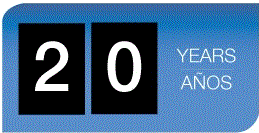Impact of the Knowledge Society in the University and in Scientific Communication
DOI:
https://doi.org/10.7203/relieve.20.2.4343Keywords:
Educación superior, sociedad del conocimiento, e-learning, acceso abierto, ciencia abierta, altmetricAbstract
Over the last two decades, as a result of the introduction and intensive use of technologies for information and general knowledge, especially from the internet, the university is living in a process of complete transformation that affects it´s academic and organizational structures as well as the conception of educational methodology. The ICTs have demonstrated a need to establish coherent institutional strategies in their use and application, along with the possibility to expand the sphere of institutional action, in regards to general access to higher education. All of this shows an existing change from a model of education based on the transmission of knowledge, that was rather limited and under restricted access, to another that should fundamentally facilitates the competence to learn from people that live in the world in constant change, with open access to information and general knowledge. In addition, all of this implies a transformation in the dynamics of communication and diffusion of scientific knowledge that is now converted into something open and accessible which is subject to an analysis of knowledge social networksDownloads
Downloads
Published
How to Cite
Issue
Section
License
The authors grant non-exclusive rights of exploitation of works published to RELIEVE and consent to be distributed under the Creative Commons Attribution-Noncommercial Use 4.0 International License (CC-BY-NC 4.0), which allows third parties to use the published material whenever the authorship of the work and the source of publication is mentioned, and it is used for non-commercial purposes.
The authors can reach other additional and independent contractual agreements, for the non-exclusive distribution of the version of the work published in this journal (for example, by including it in an institutional repository or publishing it in a book), as long as it is clearly stated that the Original source of publication is this magazine.
Authors are encouraged to disseminate their work after it has been published, through the internet (for example, in institutional archives online or on its website) which can generate interesting exchanges and increase work appointments.
The fact of sending your paper to RELIEVE implies that you accept these conditions.














